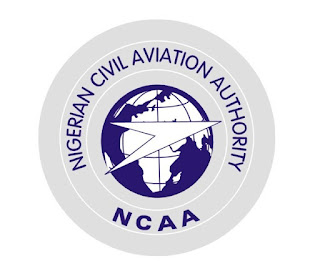NCAA: Aircraft leasing companies may blacklist Nigeria
There are strong indications that aircraft leasing companies may blacklist Nigeria over failure of domestic operators to keep to terms of agreements in leasing aircraft, spares and engines.
This development was disclosed to newsmen in an interview by the Director General of the Nigerian Civil Aviation Authority (NCAA), Captain Muhtar Usman.
According to him, Nigerian airlines are now finding it difficult to lease aircraft and spares from international lessors.
He said the development was due to the actions of two airline operators who reneged on their contractual agreements with the lessors to return their leased aircraft as enshrined in agreement they signed.
Usman added that rather than return the aircraft, the operators went to court to stop the lessors from repossessing their airplanes.
The director general also explained that Nigeria is signatory to Cape Town Convention, which allows an airline of member nations to lease aircraft and return them as agreed, but some Nigerian airlines after signing agreement to abide by these conditions repudiate them after possessing the aircraft.
Usman said that there is a clause in the Cape Town Convention that authorises the Civil Aviation Authority to deregister the aircraft in contention and allow the lessor to repossess his aircraft.
“The Cape Town Convention allows airline operators to lease aircraft at affordable prices. In the past, before the Convention was introduced, people leasing out aircraft (lessors) were having difficulty repossessing their aircraft when there was default. So that Convention took care of that by providing irrevocable deregistration authorisation for the Civil Aviation Authorities where there is default should be able to deregister their aircraft and for the owner (the lessor) to repossess his aircraft.
“That has made it possible for our operators to access leases. It is not only Nigeria; so many countries have signed to the Convention and Nigeria has domesticated it. But unfortunately because of the acts of two operators, Nigeria is about to be blacklisted and this would make it difficult for other operators to have access to access aircraft on lease,” Usman said.
The airlines’ inability to lease airplanes, he explained, has affected the number of aircraft in operation in the country.
This, it was learnt, has forced the airlines to hike their fares in order to meet their operational cost, as demand outstrips supply due to fewer operational aircraft.
Without the ability to lease, some Nigerian airlines are left with only one choice – outright purchase of aircraft at high cost occasioned by the depreciating value of the naira.
Usman disclosed that Nigerian airlines that want to lease aircraft might not be able to do so because the country is now identified as a pariah state that cannot keep to terms of leasing agreement.
Usman also denied a claim that any aircraft was taken out of the country, adding that the aircraft said to have been taken out of the country are still in Lagos.
He explained that there were two aircraft and two helicopters that were leased by Topbrass Aviation Limited, which the company allegedly failed to return according to the terms of the leasing agreement, which prompted the lessor to request for the re-possession of the aircraft.
The director general said in line with the Cape Town Convention, NCAA had to deregister the aircraft and grounded their operations in Nigeria, after the Managing Director of Topbrass Aviation, Captain Roland Iyayi, had claimed that the aircraft was stolen.
“We thank God that such has not happened. Such cannot happen in Nigeria’s airspace. In fact, it came to me as surprise when I saw it as the front page headline of a major newspaper; that aircraft was stolen from the Murtala Muhammed International Airport. We are not aware of that,” Usman said.
The CEO of Aero Contractors, Captain Ado Sanusi, also said that Nigerian airlines had already been blacklisted by some lessors because it is difficult to lease aircraft, engines and spares.
“It is because of this that my requests to lease nose wheel from some companies were rejected. I have made efforts to lease aircraft spares but the request was rejected. This is a problem caused by those who cannot abide by the terms of agreement when they leased aircraft,” Sanusi said.
The Chief Executive Officer of Topbrass, Capt. Roland Iyayi, had told journalists that his company kept to the terms of agreement in the leasing of the aircraft, but the lessor later failed at execution.
“Our belief is that there is a group somewhere trying to manipulate the system to the detriment of Topbrass, doing everything to see that we are taken out of business completely. The truth is that we have completely moved out of the rule of law to impunity. But in the long run, it is not in the interest of the country,” he said.








